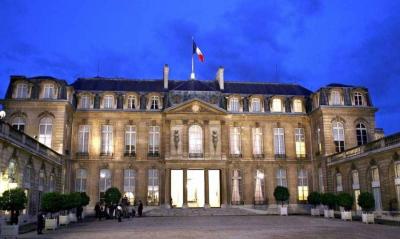Our correspondent in Paris, Samir Twaini, reported that France is intensifying its efforts to prevent Lebanon from sliding into a conflict that could threaten its existence. The French Foreign Minister, Stéphane Sigourney, will begin a visit to the Middle East starting this Saturday to discuss the Lebanese file and the ongoing conflict in Gaza. He will leave Lebanon on Sunday after meetings with Lebanese officials and head to Saudi Arabia to discuss bilateral matters, concluding his visit on Tuesday and Wednesday in Israel in a French attempt to establish a ceasefire before the attack on Rafah.
Sigourney's visit to the region comes as a continuation of a visit he made last February and is part of the discussions that President Emmanuel Macron had with Lebanese Prime Minister Najib Mikati and Lebanese Armed Forces Chief Joseph Aoun in Paris last Saturday, as well as Macron's communications with Israeli Prime Minister Benjamin Netanyahu and Egyptian President Abdel Fattah el-Sisi regarding the regional situation resulting from the war in Gaza and Lebanon.
France finds the situation in Lebanon extremely concerning following the increase in reciprocal attacks recently witnessed along the Lebanese-Israeli border between Israel and Hezbollah due to the escalation following Iranian shelling on Israel. In this context, Paris believes that Lebanon faces two challenges: firstly, a political challenge represented by the ongoing presidential vacuum that has lasted for more than a year and a half, which is essential for reactivating Lebanese institutions. Secondly, a military challenge due to the escalation along the Blue Line that may threaten the Lebanese entity. This constitutes a rejection of the current situation that prevailed before October 7 and requires the removal of Hezbollah forces from the border between the two countries to avoid slipping into an open war at any moment by enforcing international resolutions.
During his visit to Lebanon, Sigourney will reintroduce the modified French paper that was discussed during the Paris meeting between Macron and Mikati. A consensus has been reached on a paper, and modifications were made to facilitate this agreement without undermining the essence of the paper.
France sees no discrepancy between the American approach represented by U.S. envoy Amos Hochstein and the French paper; rather, there is American-French cooperation to find the best solutions to end the Lebanese crisis and halt the escalation. Furthermore, Paris does not believe in a unipolar American solution. The difference between the two papers lies in Hochstein's desire to start from the land demarcation after successfully delineating maritime borders, while Paris hopes to begin from de-escalation, with boundary demarcation to follow a ceasefire.
In this context, the visit of French presidential envoy Jean-Yves Le Drian to Washington was successful, and differences in viewpoints seem to have been smoothed out, indicating effective American-French coordination to reach a solution following meetings held by the envoy with American parties.
Regarding the presidential elections, Paris considers them extremely necessary, emphasizing that the escalation in Rafah should not allow the Lebanese political class to procrastinate until a ceasefire, using it as an excuse for prolonging the presidential vacuum, as there is an urgent need for a president. The fear of escalation should encourage the rapid filling of the presidential vacancy. Paris, in this context, does not have a candidate but calls on Lebanese parties to agree on a candidate to be elected.
As for the issue of Syrian refugees in Lebanon, it was a major topic between Presidents Macron and Mikati. Paris is not against the voluntary return of Syrian refugees to safe areas in Syria, but those opposing their return are led by President Bashar al-Assad, implying that he does not guarantee suitable conditions for their return, according to "An-Nahar."




